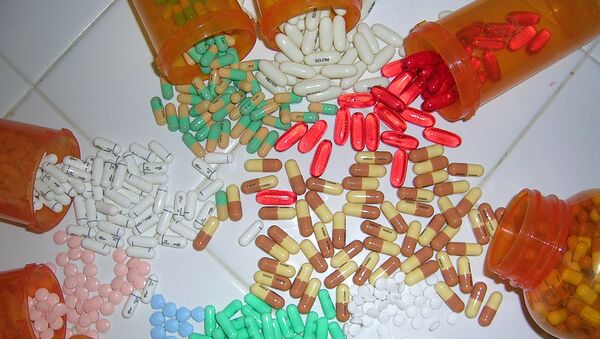Brianna Newman is speaking in a YouTube video about Wellbutrin – a prescription antidepressant she’s been taking for several months. The woman says her depression is gone, but she can’t eat and her hands are shaking.
“I put my hand up, — people won’t really notice it, but it won’t stop shaking, which is not terrible, but it’s not great either.”
For years Wellbutrin was marketed as a “magic pill”, curing several disorders, sometimes strange combinations of them. It was labeled the “Happy, skinny, horny pill” for its role in alleviating sexual dysfunction while, at the same time, fueling weight loss and, for dessert — helping patients to quit smoking. Although the above uses were “off-label”, GlaxoSmithKline – the drug’s manufacturer, actively promoted Wellbutrin’s “magic qualities”. And that’s what got Glaxo into trouble. In 2012, the company agreed to plead guilty and pay $3 billion in fines for marketing the drug for uses unapproved by the FDA.
Nevertheless, the $3 billion settlement (the largest in US history) is no big deal for pharmaceutical giants. A 2012 report by Public Citizen – a consumer watchdog, revealed that since 1991 Big Pharma companies paid a total of $30.2 billion in settlements with federal and state governments. And that generosity stretches far beyond paying hefty fines. Glaxo and others pay top dollar to doctors who promote their products.
According to Blair Hemrick – a former GlaxoSmithKline sales representative-turned-whistleblower, the company paid thousands of dollars to physicians for so-called “speaking gigs” where they have been giving presentations of Glaxo brands to other doctors. In an interview to the Alex Jones show Hemrick said he even attended a paid presentation that was in fact… a fishing trip:
“I even had one physician… We flew to Louisiana and he wanted me to go with him, and he spoke to one physician. So there was five drug reps, one physician, the doctor that I brought in, and we went to a fish camp in Louisiana. And I don’t recall what his honorarium was at the time, but it was a nice weekend for him to go home, to his home town. So, I mean, it’s a pretty nasty business”.
With nearly 60% of Americans taking prescription drugs – a number that increased significantly over the past decade, it seems that there is no end to the piles of pills sold to patients, who trust their family doctor completely. It’s hard to say whether that pill, which is supposed to cure depression and obesity while improving one’s sex life and miraculously helping to kick that nasty smoking habit, is not some kind of new “Big Pharma snake oil”.


